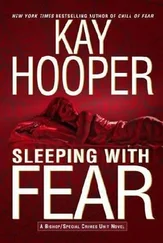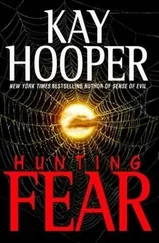Rafe blinked. “Plumbers?”
“I’m just saying. Mission-oriented serial killers target groups. Unless our guy is out to kill all women, or at least all successful women-a task even a madman would have to find daunting-then I don’t believe he’s mission-oriented.”
“Sounds logical to me. Next?”
“The hedonistic killer is after pleasure or thrills when he kills. He may get his jollies from the kill itself, from the arousal and gratification of what’s basically a lust murder; he may enjoy the planning stages, the stalking of his prey. Or he may find pleasure in the consequences of the kill if, for instance, he gains a kind of freedom by killing family or people he perceives as tying him down somehow.”
“Control-oriented type?”
“His thing is having power over the victim, especially the power of life and death. If he rapes, it’s for control and domination, not thrills. And this type generally doesn’t kill his victims immediately. He likes to torture, both physically and psychologically. He wants to draw it out, savor his power over them, watch their helplessness and terror.”
“You must have hellacious nightmares,” Rafe said.
She looked at him with a little half smile. “Oddly enough, no. My nightmares tend to come while I’m awake.”
Rafe waited a moment, giving her an opening, but it was obvious she didn’t intend to take it. “So our guy is not likely to be control-oriented, or at least not driven by that, since he doesn’t waste any time at all in killing his victims. And the visionary type of serial killer I’m assuming is the nail Alan may have hit on the head?”
“Umm. Alan… and the note sent to him.” She tapped a red fingernail against the plastic-sleeved note Rafe had placed atop the stack of papers on the conference table in front of her. “This makes me wonder, it really does. If it’s not purely a ruse designed to throw us off track-and we have to assume that’s at least possible-then this note could tell us a lot about our killer. I’ll need to make a copy for us and send the original to Quantico, by the way. The handwriting experts may be able to tell us something. As for what the note says…”
“He wants us to stop him?”
“If we accept this as written, and as written by the killer, then some part of him does. The sane part.” Isabel paused, frowning. “The least common type of serial killer is the visionary, someone who sees visions or hears voices commanding him to kill.”
“As in Son of Sam.”
“Yeah. He usually attributes the voices to God or some kind of demon and feels himself helpless to disobey them. He’s not in control, the voices are. They tell him to kill, who to kill, when to kill. Maybe why those particular people have to be killed. He may hear the voices from childhood, or it may be a sudden psychosis brought on by stress or trauma. Some people believe a chemical change in the brain is responsible, but, as I said, we don’t know a whole hell of a lot about how the brain really works.
“In any case, the visionary killer feels he’s controlled by something alien, something that is no part of himself. Sometimes he ignores or fights the voices or visions for years before they finally overpower his will. Bottom line, he’s a puppet with someone else-or something else-pulling his strings.”
“Okay,” Hollis said, studying the notes in her hand and then looking up as Mallory pulled the police Jeep to the curb and parked. “This should be it. Last place on Jamie’s list of properties.”
“What’re we expecting to find here?” Mallory wondered, eyeing the boarded-up front window of what had once, years before, been a gas station. “According to her broker, Jamie planned to sell this place.”
“Yeah, but he also said that wasn’t the original plan. She bought this property meaning to raze what’s here and build a nice little place to fit in with the boutiques popping up at this end of town. It would have vastly increased the value of the property. Then she very suddenly decided to just sell out.”
“But she made that decision about several of the properties we’ve looked at. And the broker didn’t say suddenly, he said somewhat unexpectedly.”
“Somewhat unexpectedly about three months ago. Isabel says that fits the time frame; it’s when Jamie started showing signs of nerves. Deciding to unload so much of her property virtually all at once even if it meant taking a loss was out of character, and when people do things out of character there’s usually a good reason behind the actions.”
“Like she accidentally killed a lover, maybe. But what was the plan after she sold out? Did she mean to get her hands on all the cash she could so she could leave town?”
“Could be. Isabel thinks there’s a possibility.”
“Then why are we checking out these places? She wouldn’t have hidden the photo box-or any other keepsake-in a place she was going to sell. You don’t think we’re going to find a body in there?”
“Well, you know as well as I do, the state crime network coughed up a list of at least three women of roughly the right age reported missing in this general area at about the same time Jamie got nervous. The police in each district believe all three women did not leave of their own free will, which makes homicide at least a possibility. And… if things did get out of hand in one of Jamie’s little games, she had to do something with the body.”
“Hide it in a building she owned herself and was planning to sell?”
“I wouldn’t call it a smart thing to do. Unless she figured out a way to completely destroy the body or completely hide it even if the building came down. Or unless she planned to be far away and living under an assumed name or something by the time anything was discovered.”
“Interesting possibilities,” Mallory agreed. “Okay. Grab your flashlight and let’s check it out.”
Isabel turned her gaze to the bulletin boards across the room, which had, Rafe noted, acquired what looked like canvas drop cloths that could be conveniently lowered to cover the boards whenever unauthorized persons were present.
The cloths were lowered now, presumably because Alan had been in the room.
Absently, she said, “Mallory thought the drop cloths would be a good idea, so she fixed them. We can keep the boards covered most of the time, unless we’re in here working. Less chance of too much information leaking out.”
“Isabel? Could a visionary killer gain control over his voices for years between killing sprees? Could he live normally during those years?”
“That would be… unusual.”
“But would it be possible? Could it be? Are we dealing with a killer who really isn’t responsible-at least legally-for what he’s doing?”
“That might depend on the trigger-and the reason or reasons behind all this.”
“What do you mean?”
“I mean the human mind, the human psyche, is a very complicated beast. Generally speaking, it knows how to protect itself, or the most fragile aspects of itself. If he’s hearing voices or seeing visions, and they’re commanding him to do things utterly alien to his nature, then sure-he could forget about them the moment the voices or visions stop.”
“For years on end?”
“Maybe. And then something happens in his life to trigger this psychosis, and his sick and twisted alter ego comes out to play.”
“For six weeks. Six women. Six murders.”
“The number, the time period, both have to be relevant, either tied to an event somewhere in his past or tied to the psychosis. To his voices.”
“Which is your guess?”
Isabel thought for a moment, then said, “Childhood. The majority of the traumas that affect us most deeply occur in childhood. It’s when we’re most vulnerable.”
Читать дальше












